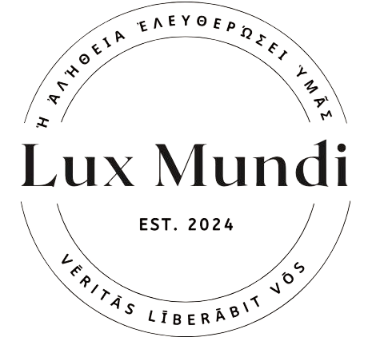In a recent article from The Atlantic, a troubling trend is highlighted: students today are increasingly unprepared to read entire books. This isn’t merely a matter of preference; it’s a skill deficit that has profound implications for their intellectual and personal development. The piece underscores how students, even at elite institutions, struggle with the demands of reading full texts, a challenge exacerbated by educational systems that prioritize excerpts and standardized testing over deep engagement with literature. This shift has left students ill-equipped to navigate the complexities of language and thought, stunting their growth as critical thinkers and well-rounded individuals.

When reading that piece, I couldn’t help but reflect on how our teaching philosophy at Lux Mundi stands in stark contrast to this prevailing trend. Our commitment to a Great Books curriculum is not only timely but also necessary in an era where even mainstream media outlets recognize the shortcomings of both public and elite educational establishments. Our curriculum is designed to immerse students in the foundational texts that have shaped Western society, from Homer’s Iliad to Plato’s Republic, and from Dante’s Divine Comedy to Darwin’s Origin of Species. We devote ample time to the Bible, acknowledging its unparalleled influence on Western thought. Unlike the growing trend of aligning education with the demands of labour markets and corporations—a factor that may contribute significantly to the decline of reading culture and processes—our vision of a university seeks to revive a love for reading while cultivating the analytical and reflective capabilities essential for true education.
Contemporary schools, unfortunately, are no longer sanctuaries for readers. For those who cherish literature and classical stories that offer timeless insights, rich language, and universal truths, today’s educational institutions fall short. They fail to prepare children to engage with these narratives, and it’s no surprise that many young people now dread reading. Can we truly blame them, given the conditions we’ve created? Schools today often rely on pedantic, disembodied reading selections, drawn from dehumanized, AI-generated textbook modules, and driven by algorithms that measure all the wrong things. There can be no true literacy in society without literature taught through a genuinely literate lens of tradition. In today’s Brave New World, most schools and their personnel are woefully inadequate—by design—to meet this once-basic expectation. If you share these sentiments, there is a strong chance that Lux Mundi is the right university for you.
John Taylor Gatto once remarked on the profound difference between schooling and education. At Lux Mundi, we honour this distinction as we prepare to welcome our first cohort of students, whom we are committed to nurturing not just as readers but thinkers and leaders equipped to engage with the world in meaningful ways.
Dr Monika Gabriela Bartoszewicz

